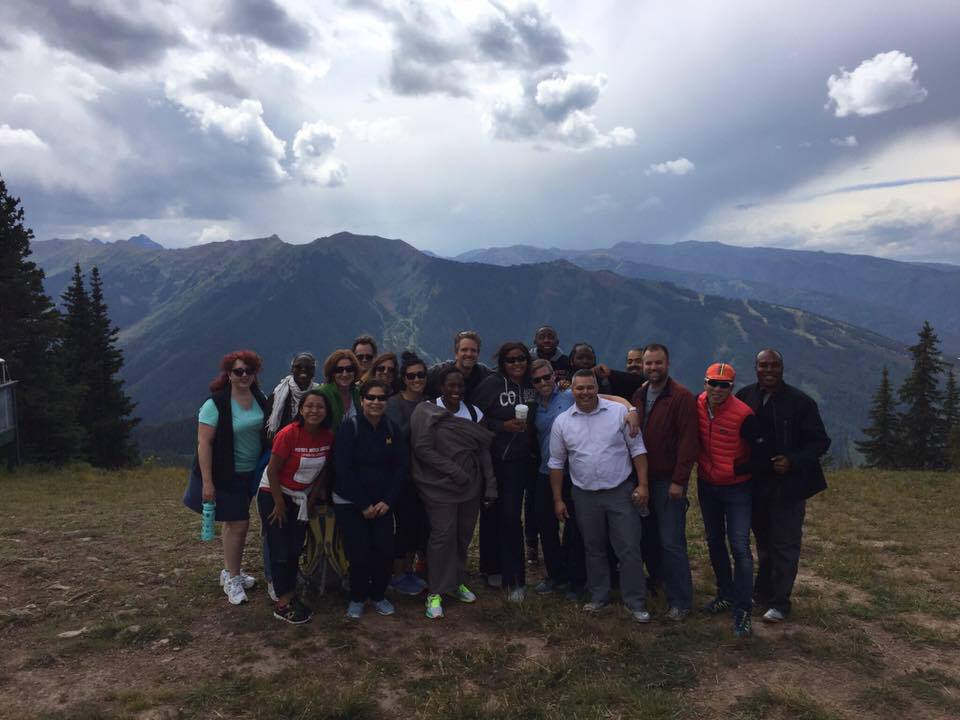Reflections on Leadership from High Above Altitude
I have read Dr. Martin Luther King Jr.’s ‘Letter from a Birmingham Jail’ more than a dozen times. I draw inspiration, reassurance and direction from the text. Given the social dynamics in America today, too many of Dr. King’s grievances still reflect the everyday life of African-American families. Those confronting injustice today surely share his disappointment with individuals in positions of authority who are more devoted to ‘order’ than to justice.
This past August, I was part of a group conversation about Dr. King’s text at the Aspen Institute through a fellowship for emerging nonprofit leaders funded by the American Express Foundation. By the fifth day of our leadership program, we had grown accustomed to discussing heavy subjects and felt comfortable talking through tension when it filled in the room. Our syllabus included lengthy excerpts from Aristotle, Mencius, Machiavelli, Rousseau, Plato, Hobbes, Locke, Marx and Engels, Tocqueville and others. The leadership program challenges participants to examine complex texts, forces them to draw connections between the writings and enables them to consider their relevance to society today and their work in the nonprofit sector.
Before diving into one of the most well-known writings of the Civil Rights Era, the discussion opened with some context. Months before Dr. King was arrested in Birmingham, he was urged by an editor at the New York Times Magazine to use one of his arrests and time in jail to write a longer defense of the non-violent direct actions that he was leading to advance social change. Although his circumstances were dire -- he was held in solitary confinement and initially denied the ability to call his lawyers and his wife -- he used this opportunity to pen the letter for public consumption. In fact, the letter was never sent directly to the eight clergymen to whom it was addressed. Rather, it was published in an issue of the Liberation, the Christian Century and soon thereafter the Atlantic Monthly.
Like many discussions we had during our seminars, I learned as much or more from the perspective of my peers. There were connections made to the Black Lives Matter movement, reflections about the degree to which progress has been made since the 1960s and much more. When I took an opportunity to speak, I chose to read my favorite section out loud, the paragraph detailing the “stinging darts of segregation.” As I read, I became overwhelmed with emotion. With tears streaming down my cheeks, I continued to share my observations about the historic levels of neighborhood violence in Chicago, the City’s chronically underfunded schools and the murder of LaQuan McDonald by a police officer. It had been a cathartic moment for me as I had not, until then, allowed myself to fully process the heartache I felt for the youth in Chicago whom society had let down.
Looking back on my fellowship at the Aspen Institute, what strikes me is that we dissected 27 other classic texts, each of which was just as enriching as the dialogue on Dr. King’s letter. The content of our seminars often carried over into mealtime discussions or 6 a.m. hikes before breakfast. What made the experience so special to me was the authentic desire of my peers to listen to each other, to learn from each other’s perspectives and to respect those with a difference of opinion. In a political climate that undervalues civility, this experience was a breath of fresh air – at 8,000 feet above altitude! I’m very grateful for being selected to participate in the program. I’m even more thankful that I was able to become friends with some truly remarkable people - the type of people who put forth tireless effort to achieve social progress rather than wait for it to ‘roll in on the wheels of inevitability.’ 
